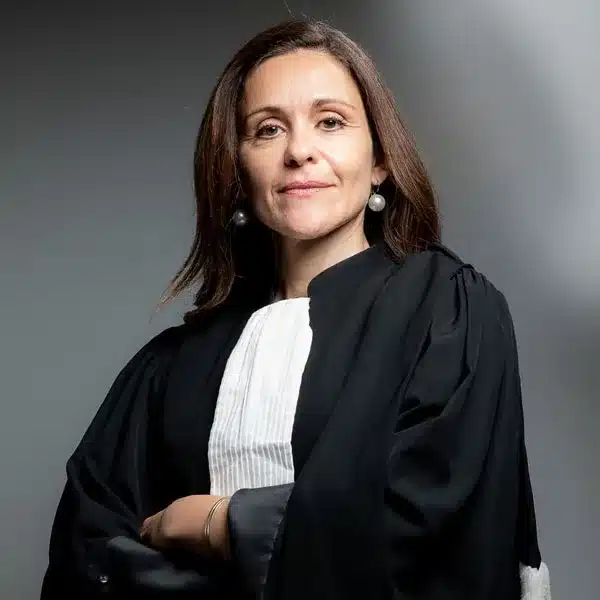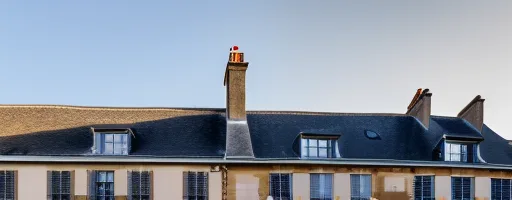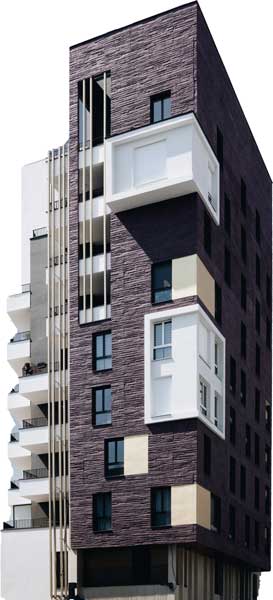
Mr. Zakine
Doctor of Law
Real Estate Lawyer
Construction – Co-ownership
Real Estate and Construction Law Attorney
Regularly intervenes throughout France
Lawyer in real estate and construction law, Maître Cécile Zakine, Doctor of Law, intervenes in disputes concerning co-ownership, real estate and construction law from Antibes throughout France.
It is lawyer in Antibes at the Grasse bar. Maître Zakine can intervene in neighboring communities (Mougins, Mouans-Sartoux, Cannes, Biot, Nice). Maître Zakine is a lawyer in real estate law in Antibes and operates throughout France (Île de France, Bordeaux, Toulouse, Paris, Lille).
Our law firm can help you in a number of areas, including property law and co-ownership management throughout France including, Paris, Bordeaux, Lyon and closer to Grasse, Cannes, Nice andt in the Alpes Maritimes and related disputes.
As a lawyer in co-ownership lawIt can help you to resolve any difficulties relating to the management and administration of a co-owned property.
Co-ownership law governs relations between the co-owners of a building and their obligations in terms of the management and maintenance of the building. It is a complex and delicate area that may require the assistance of a specialist lawyer.
The Co-ownership Law Lawyer, as Maître Zakine intervenes in matters of recovery of co-ownership charges or when a disaster occurs both within a dwelling and in the common areas.
Maître Zakine, a lawyer specialising in co-ownership law, will be able to help you draw up or interpret the articles of co-ownership, settle disputes between co-owners, represent your syndicate of co-ownership before the courts and advise you on all legal issues relating to co-ownership.
Being lawyer with daily legal practice Here are some examples of practical cases that Maître Zakine can handle in his office.
She is competent to deal with cases relating to real estate law and construction law.
- Eviction of a tenant
- Co-ownership law
- Drafting of the co-ownership regulations.
- Internal condominium conflict
- Support for general meetings
- Request for work at a general meeting
- Contesting a General Assembly
- Dispute between co-owners
- Support for trustee firms
- Support for the Trade Union Council
- Construction expertise in the context of co-ownership
- Real estate sales contract
- Change of trustee
- Référé-expertise: appointment of a legal expert in the event of damage to private property or common areas.
- Liability action against the Syndicat (strict liability) and against the Syndic in the event of default or failure to act.

Fees are set out on the appropriate page of the website, in the form of a box explaining how fees are set.
Concrete examples of lawyer intervention in property law / co-ownership / construction
The right Real estate is an area of public law that governs the relationship between public authorities and individuals regarding the use, enjoyment, and protection of real estate. Mr. Zakine provides advice via video, telephone, or in person.
This is a set of legal rules designed to govern all property-related activities, in order to ensure that the property market operates smoothly and that the interests of the various players (owners, tenants, investors, etc.) are protected.
Property law is responsible for ensuring compliance with town and country planning regulations.
It can therefore intervene in disputes relating to illegal construction or construction that does not comply with town-planning standards.
It may also be called upon to rule on compliance with easements (rights in rem) attached to a property or on the validity of a promise of sale or purchase.
The intervention of a Lawyer in Antibes in the context of a real estate sale is appropriate to reread the deed of sale, check deadlines, ensure the acquisition or sale is free of hidden defects. The Lawyer can thus offer his clients expertise before the sale or purchase to avoid any problems that may arise following the signing of the authentic deed of sale.
The lawyer can also intervene in the context of a building permit application. You will find here an interesting guide.
It sets out the procedures for managing a condominium and its communal areas (condominium regulations), as well as the various types of conflict that can arise within a condominium (neighbourhood disturbances, for example).
Reading the co-ownership regulations provides a wealth of information on common areas, private areas, the rights and obligations of co-owners and the nature of tenancies.
The descriptive statement of division, a compulsory document that sets out all the lots in the co-ownership with their private areas and the associated share of common areas, expressed in tantièmes, can also provide answers if there is any doubt about the location of a car park, for example, or the presence of a lift.
Construction law Litigation: construction disputes, action for the appointment of an amicable expert before the Judge of summary proceedings, action for compensation on the merits before the judicial courts, purchase and VEFA litigation in Antibes and the whole of France.
Lawyer CCMI (delay, forgery, subcontracting, cancellation and poor workmanship).
Co-ownership law : recovery of co-ownership charges, assistance with general meetings, assistance to syndic's firms with their management and administration tasks, construction disputes in the context of co-ownership, particularly in the case of illegal construction. She can help co-owners prepare for general meetings, draw up the co-ownership regulations or challenge a decision. She also helps clients set up general meetings and draws up service contracts with mandatory clauses.
In the field of real estate law, she assists clients with real estate sales (preliminary sales agreements, deeds of sale, etc.), and also handles cases of unpaid rent.
Help with preparing general meetings, drafting co-ownership regulations or contesting them, helping to enforce decisions made at general meetings, checking and contesting co-ownership charges. Co-ownership lawyer in the Alpes-maritimes (06), Maître Zakine can help you. She works with co-ownerships in Nice. She can also help with the distribution of co-ownership charges. Help with setting up the general meeting.
Drafting of service contracts: inclusion of mandatory clauses
Real estate law: assistance with real estate sales (preliminary sales agreements, deeds of sale, etc.), unpaid rent. Drafting of commercial leases for business or not.
Property law: disputes relating to an encroachment, an easement, a boundary: action for amicable resolution of the conflict or before the competent courts, drafting of commercial lease, help with the realization of your real estate projects, verification of the promise of sale, help with the real estate sale.
Hidden defects are faults that are not apparent when you buy a property, but which can cause major problems once you move in. If you think your property has hidden defects, it's important to consult a property lawyer. They can help you understand your rights and find a solution to the problem.
Neighbourhood disputes are common when it comes to property ownership. They can be caused by issues such as excessive noise, unpleasant odours or access problems. In such cases, it is important to consult a specialist in property law to resolve the conflict effectively.
Disposal deeds are legal acts that transfer ownership of a property from one person to another. It is important to consult a lawyer specialising in property law to help you draw up and finalise these deeds legally and in compliance with the law.
In short, latent defects, neighbourhood disputes and deeds of disposal are common property-related problems. It is important to consult a lawyer specialising in property law to resolve these problems effectively.

Read a real case in VEFA treated by Me Zakine
Extract: " "There is no communication. The promoter does not respond to my emails and letters of formal notice. "In any case, I re-read the contract and the promoter is within his rights. There is a clause that allows him to justify his delay. are the classic phrases I hear most from the promoter and the clients.
Co-ownership creates individual and collective rights, obligations and interests.
These interests are sometimes divergent and must be settled in application of the 1965 Law and its 1967 Decree of Application.
In addition to the legal aspect, co-owners must comply with the co-ownership regulations, which determine, in particular, the private parts, the common parts, the common parts for private use and the obligations of the co-owners, in particular those not to infringe on the rights of other co-owners.
The Joint property is appointed to manage the co-ownership. It administers the property and ensures the conservation and upkeep of the building or residence it manages.
The syndicate of co-owners of a building is a legal entity comprising all the co-owners. Like the Syndic, it is responsible for the management and conservation of the common parts of the co-ownership, and defends the collective interests of the co-owners. It meets at general meetings, at which resolutions are voted, in particular those placed on the agenda of the General Meeting by co-owners wishing to request authorisation to carry out work that could affect the common areas, in particular the aesthetics of the residence or building.
As a legal person under private law, it can take legal action and enter into contracts.
All of these rules can lead to disputes that generate litigation.
The other major family of actors who can intervene are lawyers. They can both play the role of mediator when the parties wish to settle their dispute amicably, but they also have the prerogatives attached to their function, which are asserted in the expression of the contentious way.
Consideration of the nature and severity of the conflicts is therefore necessary for a fair selection of the most appropriate actor.
L'Lawyer in co-ownership law advice and supports property management firms in the day-to-day running of the co-ownership properties they manage:
- Assistance in the event of works authorisation or failure to obtain works authorisation,
- Letters of formal notice to co-owners,
- Recovery of co-ownership charges: letter of formal notice to the co-owner, legal action before the local court or judicial tribunal,
- Judicial or out-of-court surveys in the event of defects in the common or private parts of the building, etc...
- Amendment to co-ownership regulations,
- Attendance at General Meetings,
- Management of the caretaker's contract: dismissal, management of the lodge,
- Disputes with service providers: electricians, landscapers, etc....
- Advice to the Syndic on day-to-day management: neighbourhood disputes, vehicle parking, dangerous building work, aggression within the co-ownership, etc.
- Assistance from the Trade Union Council, whose role (assistance and co-ordination) is to co-ordinate relations between the managing agent and the co-owners.
For example:
a co-owner suffers damage to their apartmentt but the Syndic has remained silent and letters of formal notice have had no effect.
The co-ownership refuses to vote on works even if there is seepage in the communal areas, causing damage to the private areas.
In both cases, the co-owner is entitled to take legal action against the Syndicat des copropriétaires, which is liable in its own right, and against the Syndic because of its failure to act.
Nevertheless, it is the responsibility of the Union which is more liable, ipso jure, even if it is not really and concretely at fault. If the trade union has always refused to vote for work to be carried out even though the problems are clearly visible, it will be liable in its own right.
The applicant will then be able to request that he be sentenced to damages.
The co-ownership lawyer can also attend general meetings, check the minutes and provide explanations to all the co-owners when a difficult situation arises, such as a claim within the co-ownership.
The commercial leases are contracts that define the terms and conditions and the rights and obligations of the parties when a lessor makes commercial premises available to a lessee.
The goodwill and leasehold rights are linked, because the right to the lease defines the tenant's right to operate the business, that is, to be able to carry out his activity. A law firm can intervene to assist the parties and ensure that the rights and obligations of the parties are respected. A notary's office may be required to intervene to draw up and sign the commercial lease and file it with the mortgage service in order to make it enforceable against third parties. right of way can also be provided for in the commercial lease contract, so that the lessor can access his property.
The neighbourhood disturbances can also be included in the commercial lease contract to protect the parties from noise or odour nuisance. Unpaid rent should also be taken into account when drawing up a commercial lease, as non-payment of rent will result in termination of the lease.
Cabinet ZAKINE frequently deals with evictions and initiates eviction proceedings for unpaid rent or lack of insurance.
Me ZAKINE is also qualified to request cancellation of a General Meeting of co-owners or cancellation of a General Meeting resolution. But beware: there is a limitation period of two months from receipt of the minutes of the general meeting before you can take the matter to court. Disgruntled co-owners should therefore act quickly!
What are the most frequently asked questions in co-ownership?

The most common questions that arise are the following:
- What are the obligations of the Syndic and the Syndic in case of a dispute with a co-owner?
- You do part of the Trade Union Council or you are a co-owner and you notice inertia and shortcomings in the management of the co-ownership by your Syndic: what are your means of action?
- You are victim of water damage ? What should you do to alert the Syndic and how should the Syndic react?
- I want to rent but the co-ownership regulations refuse it, what rights do I have?
- My neighbour is too noisy and moreover, he has appropriated a garden which is a common part, how can the Syndic act ? Is it not a common area with private use?
- I want to build a veranda? How do I draw up the resolution to seek the authorisation of the General Assembly and how should I send the letter to the Syndic (in what form and within what timeframe)?
- The General Assembly has refused to allow me to carry out work because the documents presented at the meeting were insufficient or inaccurate, what can I do?
- The General Assembly refused to allow me to carry out work but I proceeded anyway, how can the Syndicate and the Syndic react to sanction the recalcitrant co-owner? First, have a bailiff draw up a report?
- Has the General Assembly wrongly refused me work? Can I note the resolution and request its annulment in an action for abuse of rights?
- My Syndic does not respond to my requests to repair the plate that no longer works in my name ?
- How do I settle a dispute with another co-owner?
- What are the responsibilities of the syndic of co-ownership and how can I get it replaced if necessary?
- What to do if a co-owner does not respect the rules of co-ownership?
- How can I appeal a board decision union?
- How can I get the statutes of co-ownership amended?
- How can I have a court decision concerning co-ownership?
- How can I challenge a unpaid service charge invoice from another co-owner?
- How can I get the appointment of an expert to carry out work in the building?
- How can I have a court decision concerning co-ownership?
- How can I challenge a unpaid service charge invoice from another co-owner?
- How can I get the appointment of an expert to carry out work on the building?
- Should I take legal action in summary proceedings? ? in summary proceedings ? before the Judicial Court at background ?
- My Syndic refuses to admit that the water damage comes from the water column, which is in disarray on my floor,
- My Syndic considers that the problems originate from my flat, whereas the seepage from the neighbour below my flat results in seepage in the common areas,
- The roof of the building is leaking and for years the Syndicat des copropriétaires has been voting for expensive repairs without the problem being definitively resolved. I am suffering serious consequences because my flat is leaking and my room is very damp. Should I file an action for summary judgment? Against the Syndic or the Syndicate or both?
- I am co-owner in a condominium where the building was built as a VEFA, the basements are very leaky, the developer is unable to remedy the problems and the year of perfect completion has not yet expired. What are my rights as a co-owner? What are the rights of the Syndicate? Can the Syndicate engage the responsibility of the Syndic who did not act within the allotted time?
What are the most frequent disputes in real estate law for a real estate lawyer like Maître Zakine?
There are several types of disputes that can be addressed by real estate law:
- Property disputes: these concern questions of ownership and possession of real estate, and the rights and obligations arising from it.
- Neighbourhood disputes: these concern issues of enjoyment and use of property, as well as the rights and obligations of owners and occupants of buildings.
- Disputes related to real estate transactions: these concern the sale, rental, exchange or donation of real estate, as well as the rights and obligations of the parties involved in these transactions.
- Disputes related to building regulations: these concern construction and urban planning issues, as well as the rights and obligations of building owners and occupants in terms of compliance with the rules in force.
- Disputes relating to real estate contracts: these concern issues of formation, performance and termination of real estate contracts, as well as the rights and obligations of the parties involved in such contracts.
- Damage, water damage, failure of the managing agent to act, your opposition to works at the General Meeting
